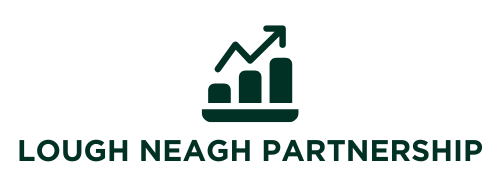Table of Contents
ToggleIn a world where avocado toast can cost more than a mortgage payment, mastering financial habits has never been more crucial. It’s not just about saving pennies; it’s about building a fortress of financial security while still enjoying life’s little pleasures. Imagine a life where budgeting isn’t a dirty word, but a powerful tool that lets you splurge guilt-free on that fancy coffee or spontaneous weekend getaway.
Understanding Financial Habits
Financial habits refer to behaviors and practices that impact an individual’s financial well-being. These habits, whether positive or negative, shape one’s approach to spending, saving, and investing.
What Are Financial Habits?
Financial habits encompass regular behaviors related to managing money. Examples include budgeting, tracking expenses, and saving a portion of income. Positive financial habits lead to prudent spending, while negative ones can result in excessive debt. Developing strong financial habits promotes a healthy relationship with money, fostering long-term stability.
Importance of Good Financial Habits
Good financial habits play a crucial role in achieving financial security. They help individuals manage their cash flow effectively and prioritize savings. Individuals who practice sound financial habits reduce the risk of unexpected financial stress. Such habits provide a foundation for future investments and wealth accumulation. Prioritizing financial literacy further enhances decision-making skills, making it easier to navigate complex financial landscapes.
Common Positive Financial Habits

Mastering financial habits fosters long-term stability. Individuals can adopt several positive practices to enhance their financial well-being.
Budgeting and Tracking Expenses
Establishing a budget lays the groundwork for financial clarity. Creating a monthly spending plan allows for better allocation of resources. Tracking expenses helps identify spending patterns, facilitating adjustments where necessary. Regularly reviewing financial statements ensures transparency in cash flow management. Tools like budgeting apps streamline the process, making it easier to stay on track. Evaluating spending habits leads to informed decisions about purchases. Reinforcing the budget as a guiding framework promotes responsible financial behavior.
Saving Regularly
Setting aside a portion of income promotes financial security. Commencing with a small, consistent amount can establish a habit of saving. Contributing to savings accounts monthly helps build an emergency fund that protects against unforeseen expenses. Automating deposits makes saving effortless, increasing the likelihood of sticking to the plan. Taking advantage of workplace retirement plans enables individuals to save for the future while enjoying employer matching contributions. Recognizing that even modest savings add up in the long term encourages continuous effort. Prioritizing savings as a key financial habit lays the foundation for wealth accumulation.
Common Negative Financial Habits
Negative financial habits can create significant challenges in managing personal finances. Understanding these habits helps individuals make informed choices.
Impulse Spending
Impulse spending occurs when unplanned purchases cause budget disruptions. Many individuals often buy items they don’t need, leading to regret. This behavior can stem from emotional triggers like stress or boredom. Establishing a budget can counteract impulse spending, allowing for financial restraint. Implementing a “cooling-off” period before making non-essential purchases aids in decision-making. Tracking daily expenses also reveals spending patterns, which highlights areas for improvement.
Neglecting Debt Management
Neglecting debt management is a common issue that leads to financial strain. Individuals often overlook monthly payments, resulting in accumulating interest and fees. Prioritizing debt repayment can prevent financial instability. Adopting strategies like the snowball or avalanche methods expedites debt reduction. Reviewing outstanding balances regularly can help maintain focus on repayment goals. Seeking professional financial advice can provide additional insights to manage debts effectively.
Strategies for Developing Better Financial Habits
Establishing effective financial habits involves implementing practical strategies. These can significantly improve long-term financial stability.
Setting Clear Financial Goals
Defining specific, measurable financial goals directs attention and resources effectively. Individuals might consider goals like saving for retirement, paying off debt, or creating an emergency fund. Breaking these goals into smaller, achievable milestones fosters motivation. Tracking progress along the way contributes to a sense of accomplishment. Regularly revisiting and adjusting goals maintains alignment with changing financial situations. Utilizing tools like vision boards or financial apps can enhance commitment to these goals. These practices collectively support a focused approach to personal finances.
Automating Savings
Automating savings simplifies the process of building wealth. Setting up automatic transfers to savings accounts ensures a portion of income is consistently saved without requiring deliberate effort. This method reduces the temptation to spend surplus funds and fosters a habit of saving. Employers often offer options for direct deposit to retirement accounts, further enhancing savings rates. With regular contributions, individuals can cultivate substantial funds over time. Utilizing high-yield savings accounts for these automated transfers maximizes interest earnings. This strategy eliminates barriers to saving and positions individuals for financial security.
Mastering financial habits is essential for navigating today’s economic landscape. By focusing on budgeting and tracking expenses individuals can take control of their financial future. Implementing positive habits not only promotes prudent spending but also paves the way for long-term stability and wealth accumulation.
Conversely negative habits can lead to financial stress and excessive debt. Recognizing these pitfalls and actively working to overcome them is vital. Setting clear financial goals and automating savings makes the journey toward financial security more manageable.
Ultimately cultivating strong financial habits empowers individuals to make informed decisions and enjoy life’s luxuries without guilt. By prioritizing financial literacy and consistent practice anyone can build a solid foundation for a prosperous future.








